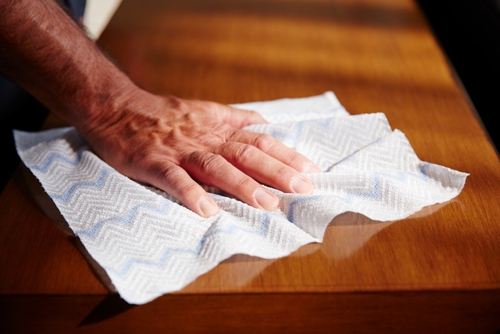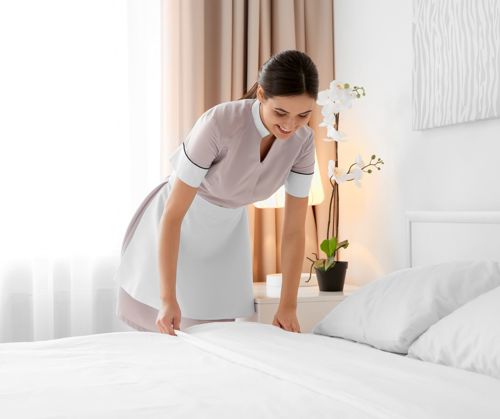
The hospitality industry has faced many challenges over the past several months. A recent Deloitte report indicated that job losses in the sector were so severe that it could take up to five years for the industry to fully recover. But what will hotels look like in five years? It's clear that major changes are needed to rebuild consumer trust.
Hotel brands across the world have been working hard to develop new strategies for deep cleaning rooms, promoting social distancing and preventing the spread of communicable diseases. There's still a lot of work to be done, but progress is being made. The picture of what the future will look like is beginning to take shape.
Barriers to overcome
With travelers returning to Australia required to spend two weeks in quarantine upon arrival, there has been significant attention placed on the hospitality industry. News.com.au reported that more than 50,000 people have entered quarantine in hotels managed by New South Wales police.
Not all quarantine hotels are managed by police, and there have been instances of extremely poor conditions at these facilities. On Aug. 26, NSW Police relocated 366 people staying in Travelodge Sydney, where quarantined guests were subjected to unhygienic conditions and a lack of food and water. Images of dirty beds and grimy bathrooms will likely cause other travelers to think twice about booking a hotel room. The entire industry must overcome barriers to customer trust to survive this crisis.
What will the new normal look like?
While it's generally agreed that hotels need to prepare for the future potential of another pandemic, it's less clear what the new standard of cleanliness will look like. Hotel brands across the globe are working with health authorities to develop new cleaning regimens, update lobby designs and build trust with customers.
Guest rooms
Hotel housekeepers will face new challenges in the new normal as guests expect a higher level of cleanliness. Part of these responsibilities may include wearing personal protective equipment such as gloves and masks. Housekeepers may also need to adopt procedures such as placing sashes on toilets, beds and doors to indicate that each area has been cleaned and untouched since the housekeeping staff left the room.
Another way that housekeeping can help to make guests feel safe and comfortable is to replace all amenities after every guest regardless of whether they were used or not. That would mean replacing items like notepads, pens, robes and slippers. Asking guests what amenities they want prior to their stay will help to reduce unnecessary work on the part of hotel staff.
In addition, everything in the room will need to be sanitised between guests. That means ensuring TVs, tables, coffee makers and other in-room amenities will need to be carefully cleaned or protected with disposable covers.
Common areas
The hotel lobby, dining area, elevators and other common areas may need to be redesigned or reimagined to accommodate social distancing guidelines. Ensuring that guests have enough space between one another will be highly important. In addition, hand-sanitisation stations will help guests to protect themselves after spending time in public.
A new position: Hygiene manager
According to Travel and Leisure magazine, major hotel groups have begun hiring hygiene managers to oversee new COVID-19 policies. These professionals are trained in managing environmental cleanliness. In some cases, hygiene managers will be certified by the Global Biorisk Advisory Council (CBAC). The hygiene manager will ensure that housekeepers and other staff are correctly following internal guidelines as well as local regulations.
Hyatt was one of the first hotel brands to introduce this position. Hyatt president and CEO Mark Hoplamazian noted that the brand's first responsibility is to its guests' safety. "[W]e must critically examine the hotel experience from every vantage point — from our rooms and our lobbies to our spas and dining — bringing in the latest research, technology and innovation," Hoplamazian said.
The role of cleaning tools and equipment
Cleaning equipment supports every effort behind new hotel cleanliness policies. Rubbermaid Commercial Products are designed to help cleaning staff reduce the risk of infectious disease and bring peace of mind to hotel guests. Durable commercial products are necessary to maintain the highest standards of health and hygiene.
Difficult times require innovative thinking and decisive action. To learn more about how the hotel industry is adapting in the time of COVID-19, get your free copy of our latest eBook, "The future of hospitality: Protecting guests from communicable diseases," today.